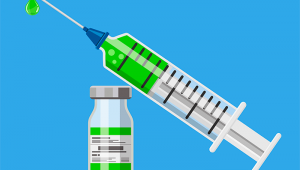The Health Foundation and the King’s Fund have called for a “clear and urgent” commitment to restore the public health grant to its original level in order to allow local authorities to deliver vital services to protect and improve health.
Analysis by the organisations shows that the grant, which currently amounts to £3.1bn a year, is now £850m lower in real terms than it was when it was initially allocated four years ago, and faces a further real-terms cut of £50m next year under provisional spending plans, representing a total real-terms cut of 25%.
With population growth factored in, £1bn will be needed to restore funding to 2015-16 levels.
Cuts to the grant are already having a major impact on services such as health visitors and sexual health clinics, which play a key role in improving the health of the population, the charities warned.
David Finch, senior fellow at the Health Foundation, said sustained cuts to the public health grant ran counter to the government’s commitment to prevent ill health and health inequalities.
“The public health grant is not ‘a nice-to-have’,” he said. “Without urgent reinvestment, we will continue to see a direct impact on people’s long-term health as well as increasing pressure on wider public services – including the NHS – which are already under considerable strain.”
Siva Anandaciva, chief analyst at the King’s Fund, said cuts to public health services were a false economy, and failure to act would store up problems for the future.
“The continued cuts to public health funding are short-sighted and at odds with the government’s stated mantra that ‘prevention is better than cure’,” he said.
“Whilst local authorities have tried to make-do by introducing efficiencies like offering online services, the budget squeeze is now taking its toll, with latest figures showing rising incidence of some sexually transmitted infections such as syphilis.”
Ian Hudspeth, chairman of the Local Government Association’s community wellbeing board, said many councils felt they had been handed responsibility for public health without adequate resources to deliver it.
“Interventions to tackle teenage pregnancy, air quality, child obesity, sexually transmitted infections and substance misuse cannot be seen as an added extra for health budgets,” he said.
“Councils are determined to maintain vital public health services, but the reality is that many local authorities are having to make difficult decisions on these key services,” he said.
“Many councils will be forced to take tough decisions about which services have to be scaled back, or stopped altogether, to plug funding gaps.”
But a Department of Health and Social Care spokesperson said there had been significant improvements in public health since 2010, with robust government action leading to a fall in rates of smoking.
“Prevention is at the heart of our bold plans to secure the future of the NHS, as outlined in the NHS Long Term Plan, and comes alongside the £3bn per year we are giving to councils to fund public health services including drug, alcohol and sexual health services,” she said.











